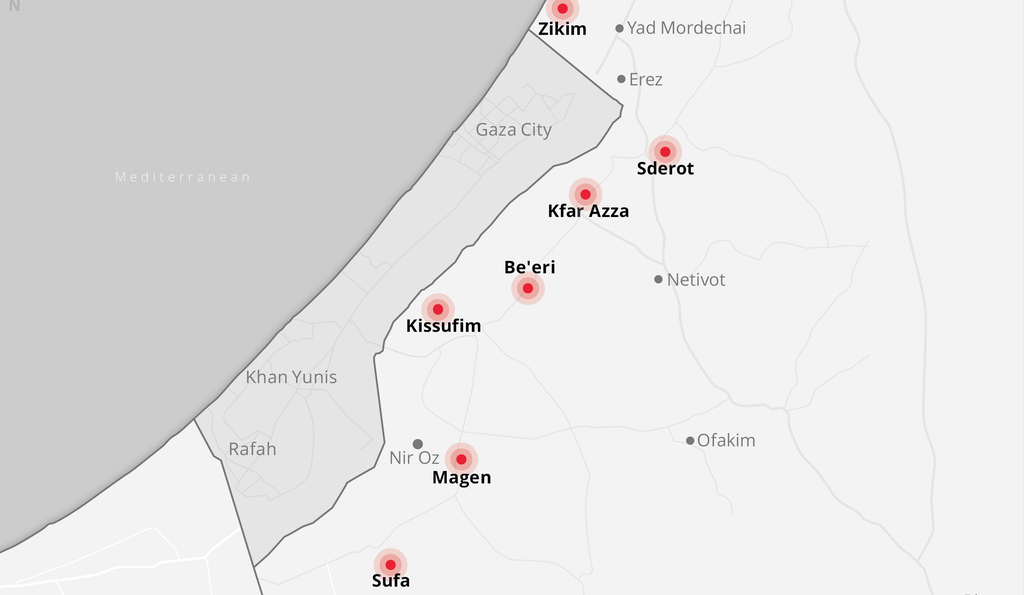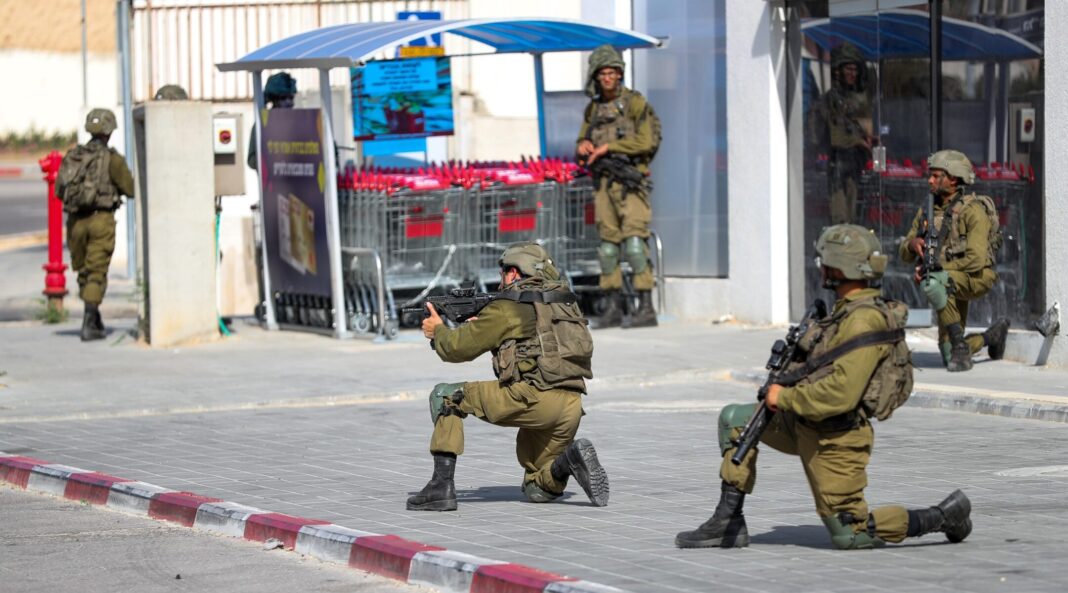Key points ■ At least 600 Israelis dead, more than 2,000 wounded ■ Fate of "substantial" number of civilians, soldiers abducted unknown ■ Clashes with terrorists ongoing in south ■ Palestinians report 313 people dead after Israel strikes Gaza ■ Dozens of Palestinian militants infiltrate Israel from Gaza by land, sea and air ■ Some 2,500 rockets fired from the Strip
Saturday will forever be remembered as a tragic day in Israel’s history, marked by an overwhelming amount of bloodshed and violence that had never been witnessed before. The distressing events unfolded suddenly on a holy Jewish holiday morning when numerous members of Gaza’s militant Hamas group unexpectedly breached the barrier separating Israel and Gaza. Their actions unleashed chaos in over 20 different areas, leaving the nation in a state of shock and disbelief. People are drawing comparisons to the infamous 9/11 incident and beginning to question the level of preparedness of Israel’s renowned military.

The Toll of Saturday’s Bloodshed
As per media sources, a significant number of Israeli citizens tragically lost their lives on that fatal day, with reports indicating over 600 casualties. Similarly, Palestinians have reported that 313 members of the Hamas militant group were killed in Israel’s strikes on Gaza. The violence unfolded on the streets, in people’s homes, and even at an outdoor festival.
The Perpetrators and Their Unprecedented Assault
The militants responsible for this shocking attack were sent by the terror group Hamas. While Hamas has a history of launching attacks on Israeli civilians, Saturday’s invasion was of an entirely different magnitude. The assailants broke through Israel’s barrier, attacked by sea, and unleashed violence in numerous cities and towns. According to media reports, around 2,500 rockets were launched from the Strip. Israeli civilians, unaided by the military initially, formed makeshift groups to confront the Hamas operatives, resulting in casualties on both sides.
Hostages and Captured Territory
During the attack, the militants took numerous hostages, including civilians, and even captured Israeli military vehicles and infrastructure. According to reports from Israeli media, approximately 100 Israelis were held hostage, with over 1,800 sustaining injuries. Such a scale of violence has never been witnessed in Israel’s history, leaving the nation grappling with the aftermath.They seized control of a police station and overran an Israeli military base. The violence also extended to an all-night party near the border, where some revelers were taken captive.
A Shift in the Dynamics
What made Saturday’s events even more shocking was the fact that Hamas had never attacked Israel on such a scale before. While Israel has faced rocket attacks in the past, they typically resulted in relatively low civilian casualties, thanks to warning systems and missile defense. Saturday, however, saw one of the bloodiest days in Israel’s history.
Israel’s Response and the Unfolding Situation
The Israeli Defense Forces (IDF) initially struggled to respond effectively to the sudden and massive assault. The attack took the country by surprise, and residents on the border were left to defend themselves. Eventually, after a day, the IDF regained control of the area, but not without significant losses and the shocking revelation that Hamas had captured Israeli hostages.
A Call for Unity Amidst Crisis
As Israel grapples with the aftermath of this unprecedented attack, questions abound about what will happen next. The government, previously occupied with other matters, now faces the daunting task of responding to this crisis. Israeli leaders have promised a large-scale war in Gaza, signaling the likelihood of a ground invasion and further escalation of violence.
Uncertain Future and International Implications
The duration and extent of the impending war remain uncertain, but the toll on both sides is expected to be significant. The issue of an emergency government has been raised, similar to actions taken during past conflicts, potentially affecting other political initiatives, including talks with Saudi Arabia and the government’s judicial overhaul.

In Conclusion
Saturday’s events have left Israel reeling and the world watching anxiously. As the nation confronts an unprecedented crisis, it remains to be seen how this horrifying chapter will ultimately unfold and what it means for Israel’s future, both domestically and on the international stage.
Freelance Writer



